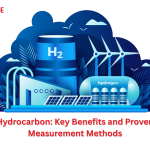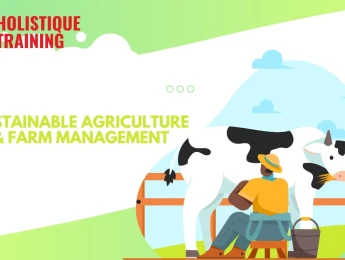In a world increasingly shaped by the pressing demands of climate change, businesses and organisations are recognising the critical importance of managing their carbon footprint. Strategic Carbon Management offers a forward-thinking approach to understanding, mitigating, and ultimately neutralising organisational carbon emissions. This five-day course will equip professionals with the knowledge, skills, and tools to lead effective carbon management strategies aligned with global sustainability goals.
Participants will delve into the complexities of carbon accounting, explore innovative mitigation strategies, and examine the role of carbon markets. The course emphasises integrating carbon management into broader organisational practices, ensuring participants understand the theoretical aspects and apply practical solutions to real-world challenges. With an emphasis on strategic leadership, this course empowers participants to drive sustainable change and contribute meaningfully to their organisation’s environmental and corporate social responsibility (CSR) goals.
Upon completion of this course, participants will be able to:
- Comprehend the fundamental principles of carbon management and its relevance to organisational sustainability.
- Accurately measure and report carbon emissions in compliance with international standards.
- Develop and implement effective carbon reduction strategies that align with organisational goals.
- Understand the dynamics of carbon markets and trading, including regulatory compliance.
- Lead and integrate carbon management practices within their organisation, fostering a culture of sustainability.
This course is ideal for professionals across various sectors responsible for or involved in environmental management, sustainability, and corporate social responsibility. It is particularly beneficial for:
- Sustainability Officers and Environmental Managers
- Corporate Social Responsibility (CSR) Professionals
- Energy Managers and Engineers
- Compliance Officers
- Business Leaders and Strategists
- Policy Makers and Government Officials
- Consultants in Environmental and Sustainability Practices
The course employs interactive learning methods designed to engage participants and enhance understanding. This includes expert-led lectures, case study analysis, group discussions, and hands-on exercises. Participants will engage in real-world scenarios to apply the concepts learned, fostering a deeper comprehension of carbon management practices. The course also incorporates peer-to-peer learning, encouraging participants to share insights and experiences, enriching the learning process.
Day 5 of each course is reserved for a Q&A session, which may occur off-site. For 10-day courses, this also applies to day 10
Section 1: Introduction to Carbon Management:
- Understanding Climate Change and Its Implications for Business
- The Role of Carbon Management in Achieving Sustainability Goals
- Key Terminologies and Concepts in Carbon Management
Section 2: Carbon Accounting and Reporting:
- Principles and Standards of Carbon Accounting (GHG Protocol, ISO 14064)
- Measuring and Reporting Carbon Emissions
- Tools and Techniques for Accurate Carbon Footprinting
Section 3: Mitigation Strategies:
- Identifying and Evaluating Carbon Reduction Opportunities
- Energy Efficiency and Renewable Energy Integration
- Carbon Offsetting and the Role of Carbon Credits
Section 4: Carbon Markets and Trading:
- Understanding Carbon Markets and Their Mechanisms
- The Role of Carbon Trading in a Global Context
- Navigating Regulatory Requirements and Compliance
Section 5: Strategic Leadership in Carbon Management:
- Integrating Carbon Management into Organisational Strategy
- Change Management and Stakeholder Engagement
- Future Trends in Carbon Management and Sustainability
Upon successful completion of this training course, delegates will be awarded a Holistique Training Certificate of Completion. For those who attend and complete the online training course, a Holistique Training e-Certificate will be provided.
Holistique Training Certificates are accredited by the British Assessment Council (BAC) and The CPD Certification Service (CPD), and are certified under ISO 9001, ISO 21001, and ISO 29993 standards.
CPD credits for this course are granted by our Certificates and will be reflected on the Holistique Training Certificate of Completion. In accordance with the standards of The CPD Certification Service, one CPD credit is awarded per hour of course attendance. A maximum of 50 CPD credits can be claimed for any single course we currently offer.
- Course Code PO2-120
- Course Format Classroom, Online,
- Duration 5 days













